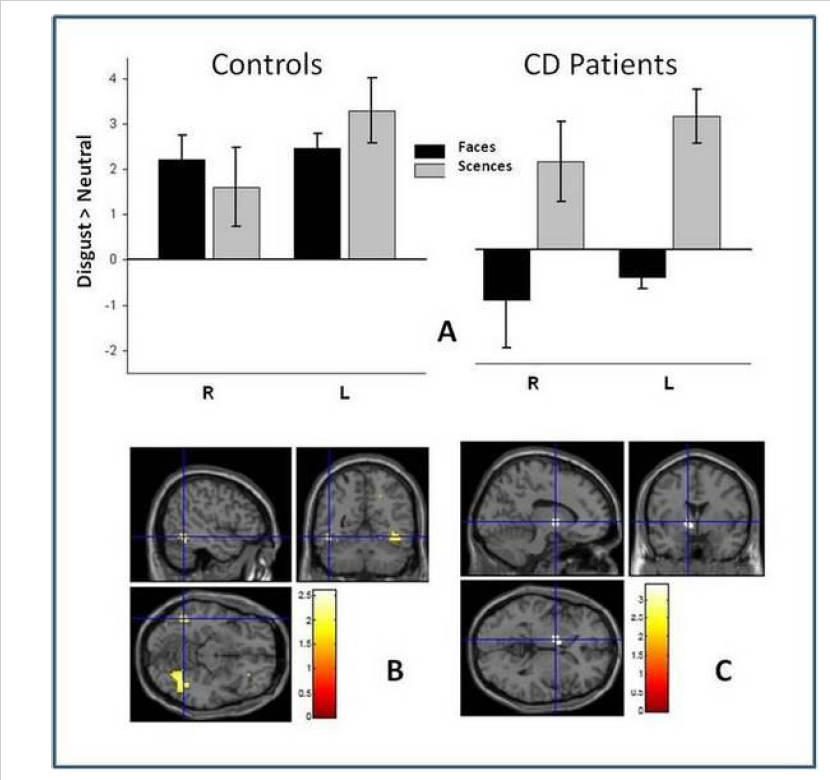No CrossRef data available.
Published online by Cambridge University Press: 15 April 2020
Functional neuroimaging studies have shown that empathy is reflected in enhanced brain activation in the same brain regions that show activation when experiencing emotions. Experiencing disgust and seeing someone else's disgust leads to increased brain activation in the inferior frontal opercular/anterior insula cortex (IFO/AI). Not much is known on potential abnormalities of the empathic brain in Conduct Disorder (CD).
To examine whether CD in adolescents is associated with aberrant empathic brain responses.
Functional MRI was used to examine brain activation in response to photos showing disgusting and neutral content and disgusted and neutral faces in 16 adolescents with CD and 16 age- and sex-matched healthy controls.
A regions-of-interest analysis for the IFO/AI showed that both CD patients and controls exhibited higher activation for disgusting compared to neutral scenes, but that only controls and not patients exhibited higher activation for disgusted vs. neutral faces (Fig1A). In a whole-brain analysis this reduced response of CD patients to disgusted faces despite a normal response to disgusting scenes was also found in bilateral occipitotemporal regions and in the left thalamus (Fig1B+C).
Conduct disorder is associated with a reduced empathic brain response in the IFO/AI. Fig. 1
[Figure 1]

Comments
No Comments have been published for this article.